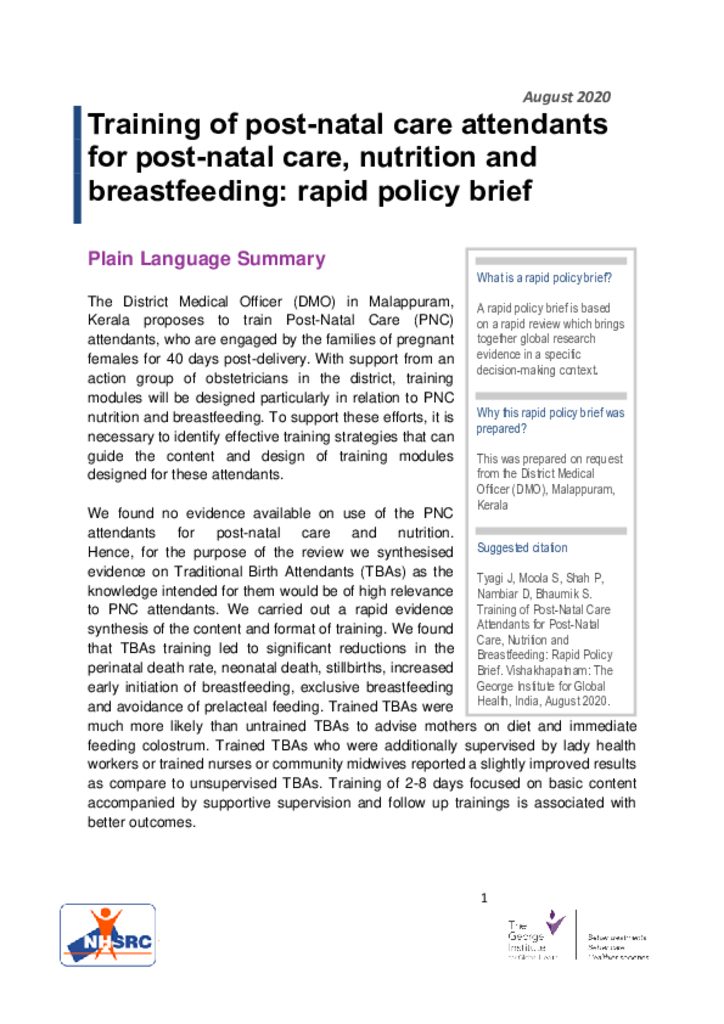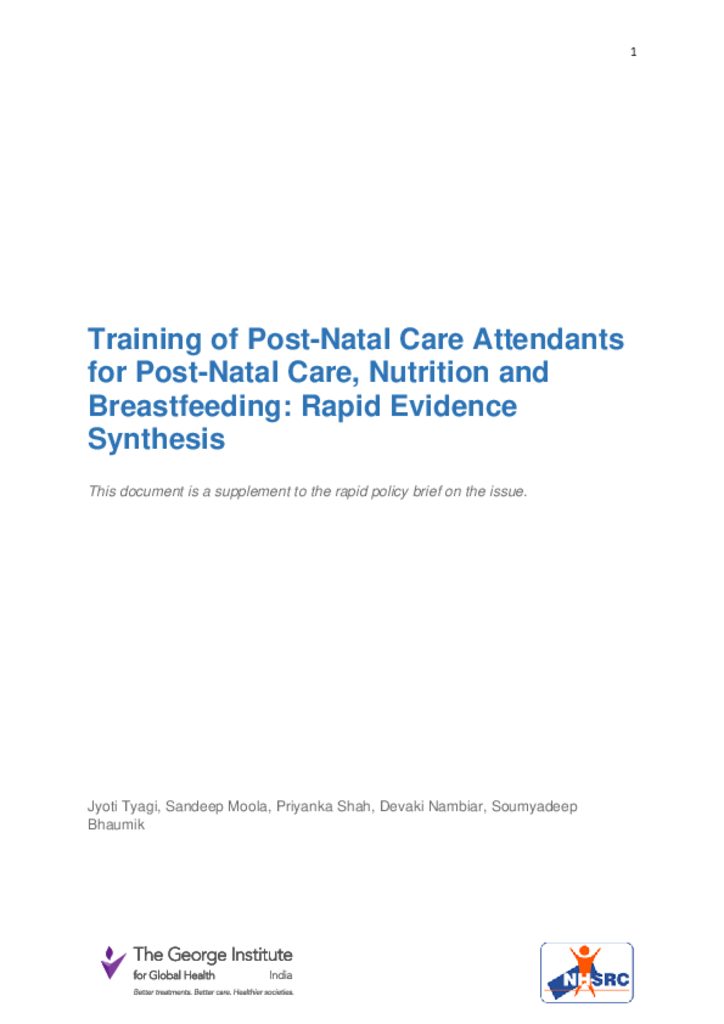
Training of post-natal care attendants for post-natal care, nutrition and breastfeeding: rapid policy brief
The post-natal period is a critical phase in the lives of mothers and new-borns. Most maternal and infant deaths occur during this time. Yet, this is the most neglected period in the provision of quality care and maintenance of healthy practices. The District Medical Officer (DMO) in Malappuram, Kerala with support from an action group of obstetricians in the district, proposes to train Post-Natal Care (PNC) attendants. The DMO intends to design training modules, particularly in relation to post-natal nutrition and breastfeeding.
She requested our RES team to conduct a rapid review that could support her in this policy endeavour. The team together with the DMO concurred on summarising evidence on three relevant components: recommendation from relevant guidelines on best practices for postnatal care, harmful postpartum beliefs and practices of mothers in India, and training of post-natal care attendants for post-natal care, nutrition and breastfeeding. This would provide the DMO with an evidence base to develop the training modules.
The team, with concurrence of the DMO, felt that evidence related to Traditional Birth Attendants (TBAs) may be relevant for their training, which was the focus of this rapid review.
Policy Options
Policy makers might consider engaging PNC attendants to improve post-natal care nutrition and breastfeeding even as direct evidence is lacking on their impact or training needs. Based on evidence from trained TBAs, training might be of 2-8 days in duration may be suitable, depending on domains being covered (No direct evidence was found related to maternal nutrition). Evidence suggests that training programs which focus on limited basic content accompanied by supportive supervision (by lady health workers or trained nurses or community midwives) and follow-up training may lead to better outcomes. An overall training plan should be developed which would include components related to “Training of the trainers”
and evaluation.





